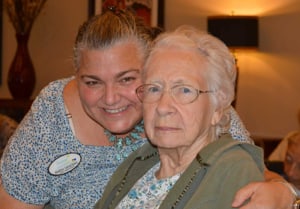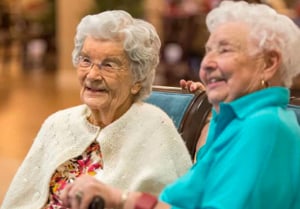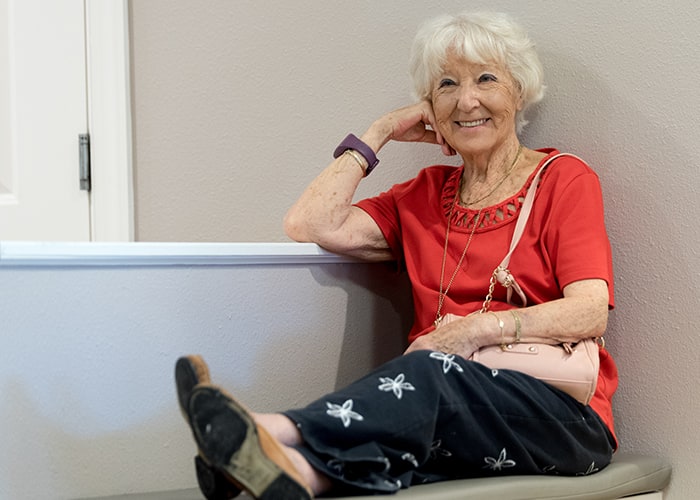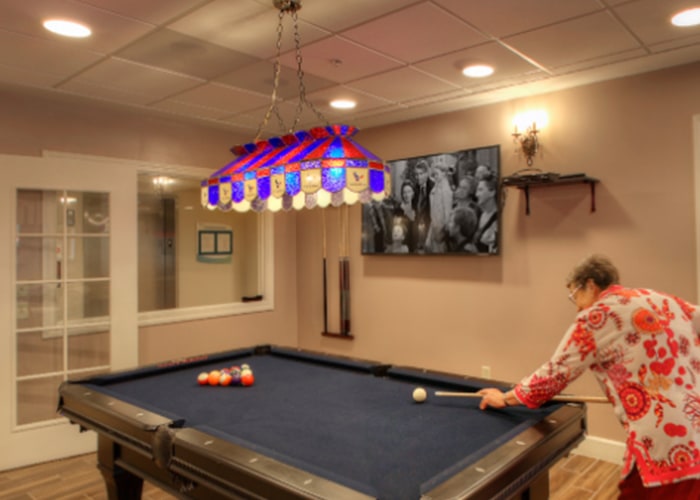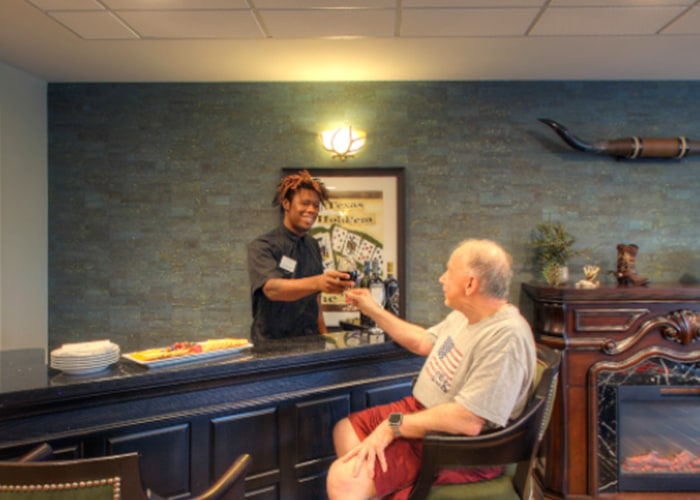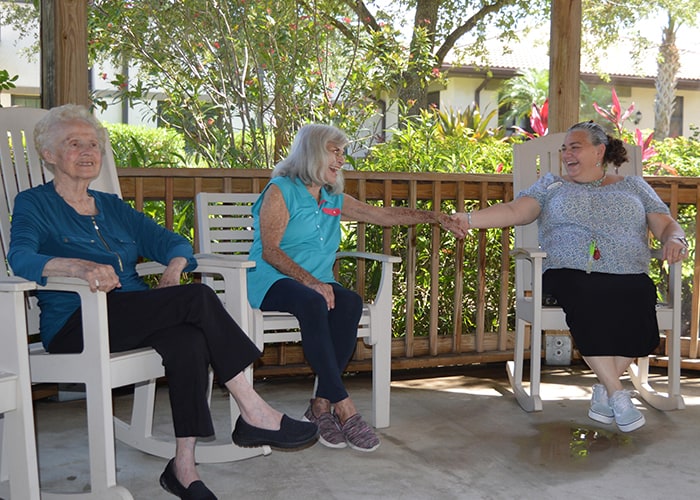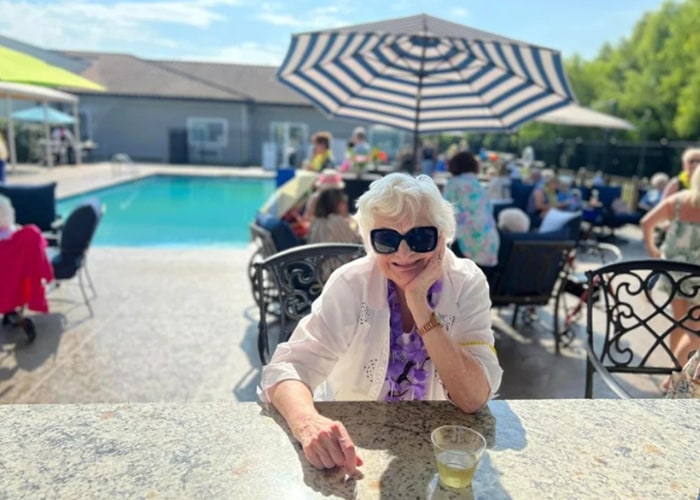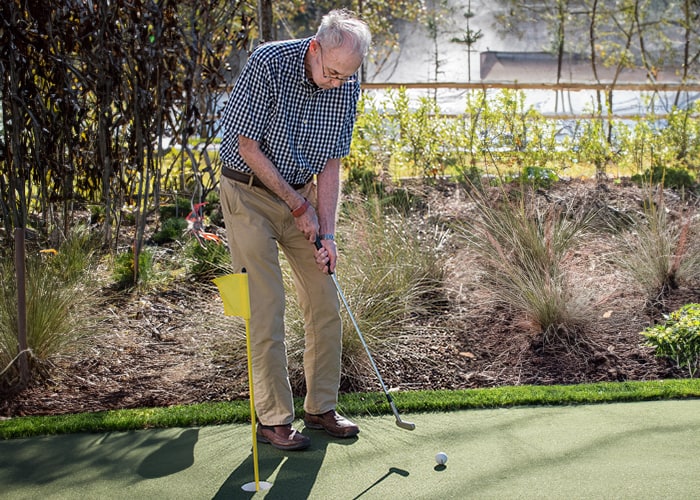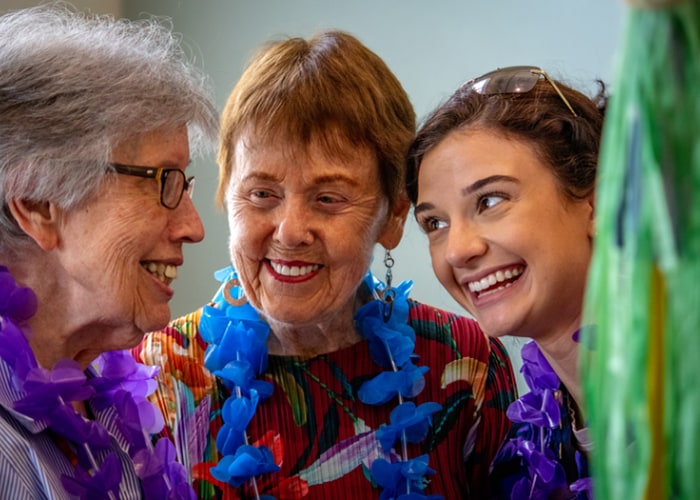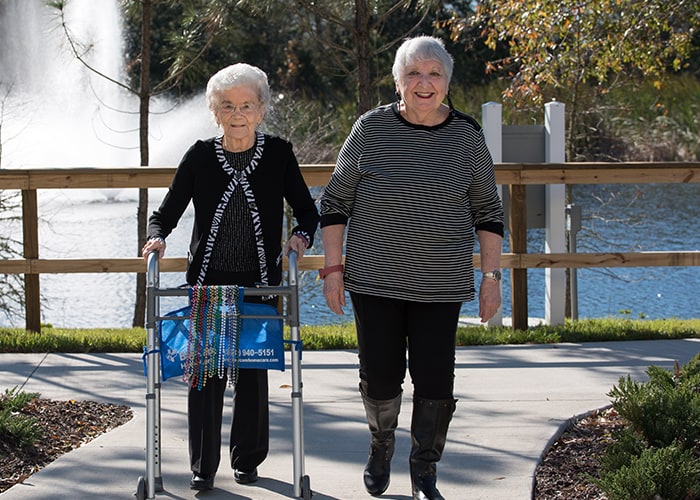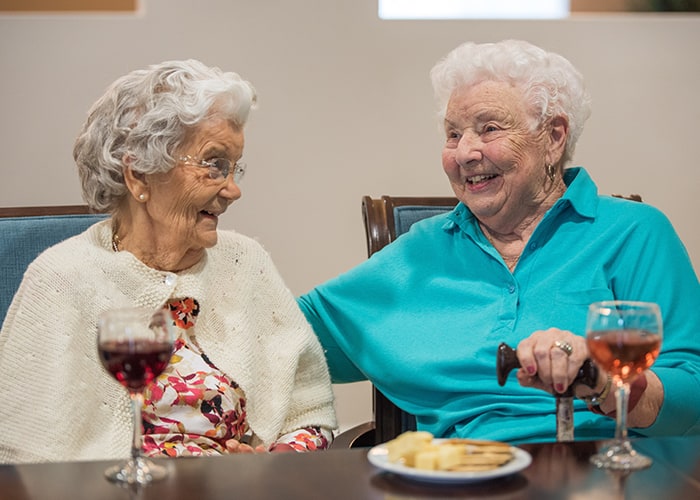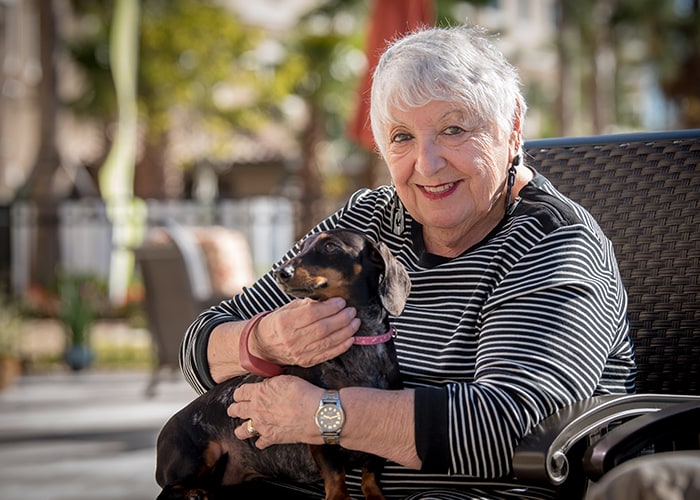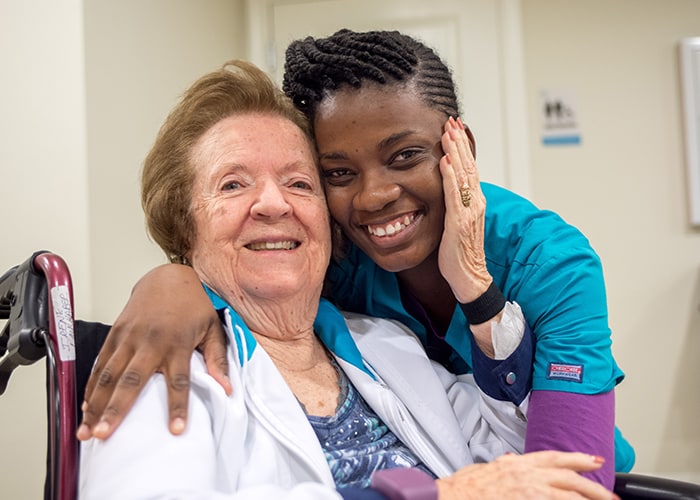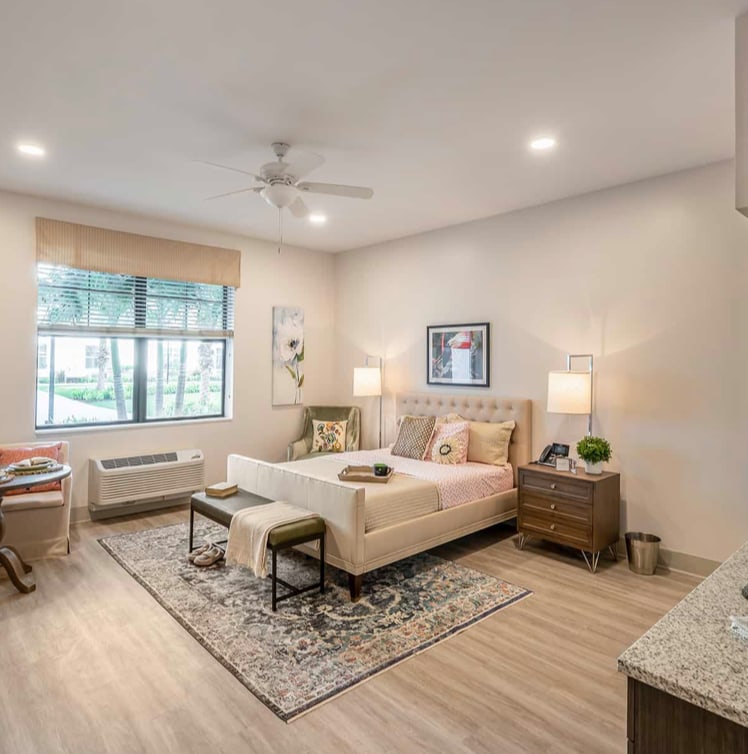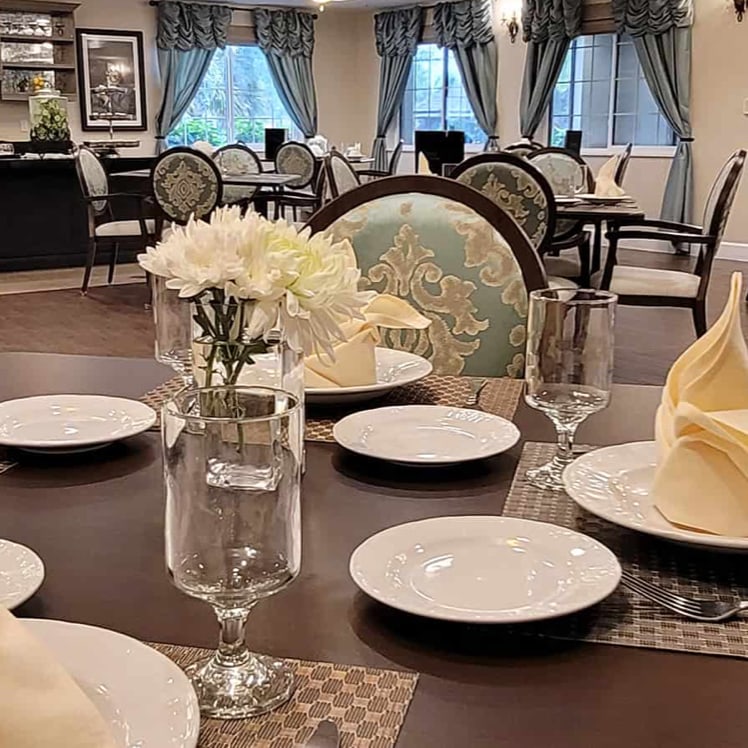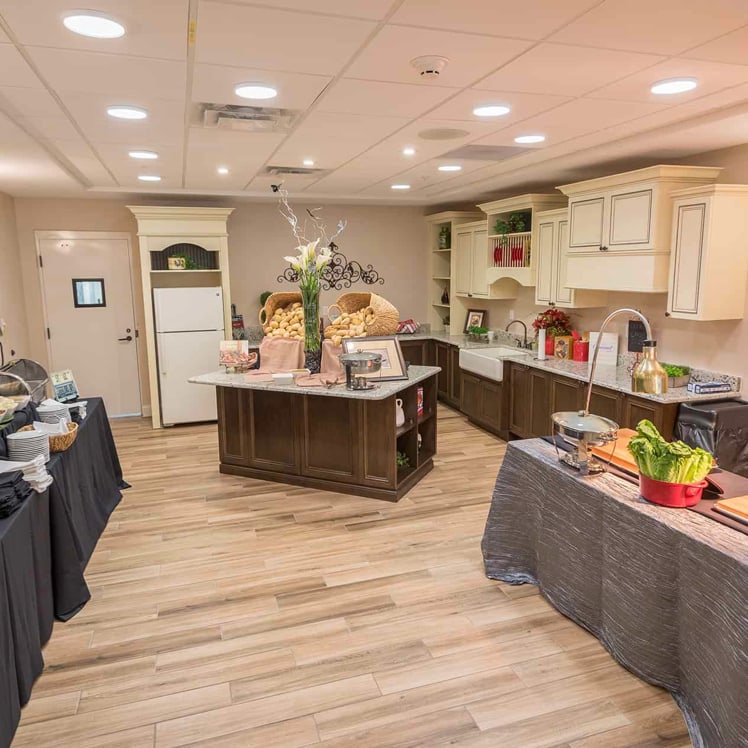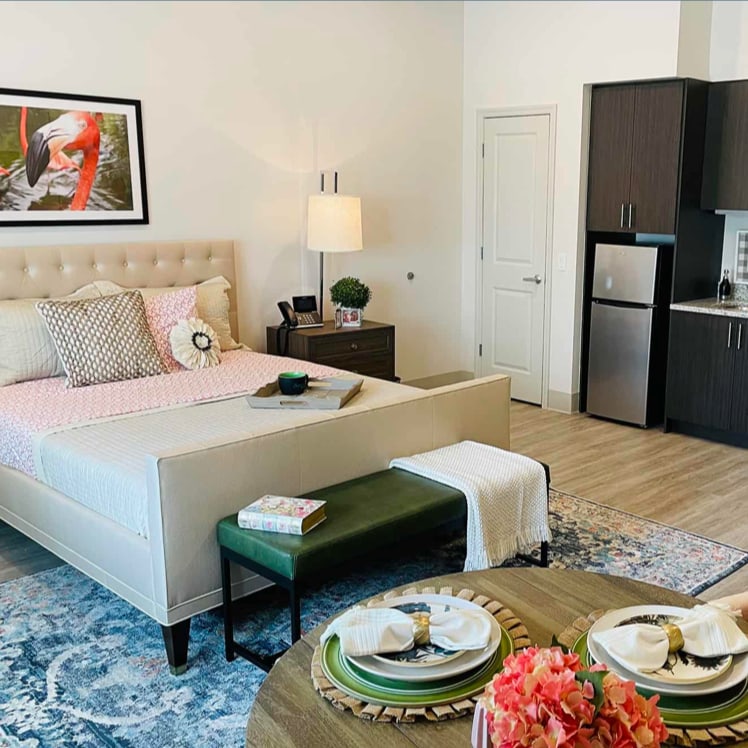Whether your parent is spending their retirement in the comfort of their own home or has moved into an independent living community, noticing changes in their abilities to perform daily living activities can be stressful. You want them to retain their independence but also want them to be safe.
Fortunately, assisted living allows older adults to retain independence while supporting them with individualized care based on their needs. Significant physical or cognitive changes in your parent, such as memory loss, more frequent falls, worsening eyesight, or forgetting to take medication, can mean it’s time to consider moving your loved one to assisted living.
Signs Your Loved One May Need More Help
Everyone is different, so there are no strict rules regarding the “proper” timeline for someone to move into assisted living. However, you know your loved one the best! You can keep an eye out for changes in your loved one that are different from how they usually behave.
Physical Changes
Physical changes in your parent are the easiest to observe (or hear them complaining about). Some common signs include:
- More frequent falls or accidents
- Unexplained bruises
- Increased frailty
- Difficulty with personal hygiene (dressing, bathing, etc.)
- Challenges performing daily living activities (cooking, walking around, keeping their living space clean, etc.)
Cognitive Changes
These changes can be more difficult to see, especially since forgetfulness happens to everyone, regardless of age. However, pay attention to these changes that happen more frequently or last longer:
- General cognitive decline
- Increased forgetfulness and confusion
- Memory loss or lapses (difficulty managing medication, forgetting appointments, misplacing items, wandering, leaving the stove on, etc.)
- Mood changes (especially if your loved one experiences the death of a spouse or caregiver)
It’s important to recognize that in addition to being signs that your loved one may need more care, they may also be signs of additional health problems. Regular physician visits to address these signs can be an additional way you can support your parent.
What’s the Difference Between Independent Living & Assisted Living?
When you realize that your loved one needs more help, familiarizing yourself with available options is the first step:
- Independent Living is designed for active and independent adults who don’t need help with daily activities
- Assisted Living provides additional support with daily living activities like medication management, meal preparation, and dressing
- Memory Care is available for people who need extra care and attention because of elevated memory concerns (or Alzheimer’s or dementia diagnoses)
- Respite Care offers short-term stays for anyone needed temporary assistance for any variety of reasons (including giving a caregiver a break, recovering from illness or surgery, or giving senior living a trial run)
Independent living generally gives its residents full autonomy, with limited assistance provided (primarily maintenance and common area services). This allows residents to focus on their hobbies and desires, engaging as much or as little with the community and social activities as they wish.
Healthcare services are generally not provided alongside independent living, which is a major benefit of assisted living communities, which can provide on-site healthcare like nursing care and medication administration. Assisted living also offers many additional benefits over independent living for older adults including:
- Individualized Needs Assessment / Resident-Centered Care Plan for grooming, bathing, dressing, mobility, & medication assistance
- Round-the-clock professionally trained staff
- Coordination with home health, hospice, pharmacy, and visiting wellness providers
- Physical therapy / occupational therapy / speech therapy
- Restaurant-style dining (special diets & dietician-certified menus often available)
- Courtesy-scheduled transportation services

How Do I Talk to My Parent About Assisted Living?
Many older adults greatly treasure their independence and freedom. Even if your loved one has already agreed to independent living, having a conversation about moving to assisted living can still be challenging.
You can make this conversation go smoother by:
- Choosing the right time and place. A quiet, comfortable place your loved one is familiar with, where you can have an uninterrupted conversation can help put them at ease. Your parent’s ease and relaxation can help set a positive tone for the conversation.
- Use empathy and active listening. Listening to your loved one’s feelings and opinions shows that you respect them, but can also make them more receptive to your concerns. Remember that you love your parent and have that feeling reflect in how you talk to them
- Highlight the benefits of assisted living. Recognizing that you need more help can be a scary thing to admit (to yourself and others), so focusing on the benefits of assisted living can help alleviate fears and resistance your loved one may have. Some assisted living communities have specialties you can mention, but overall they focus on safety, social activities, and removing the burden of daily chores.
Easing the Transition to Assisted Living
Even if your loved one is 100% on board with moving to an assisted living community, the process of finding the right space for them and moving can be overwhelming. Your help and participation can make a huge difference.
Visit Potential Facilities Together
Involve your parent in the decision-making process. Visit several assisted living communities together to find the best fit. This hands-on approach can help them feel more in control and comfortable with the transition.
Create a Familiar Environment
When moving to the new residence, bring familiar items from home. Photos, favorite furniture, and personal mementos can make their new space feel more comfortable, easing the emotional transition.
Stay Connected and Involved
Continue to visit and stay actively involved in their life. Regular visits and communication reassure your loved one that they’re not alone and help them adjust to their new surroundings.
At the end of the day, this transition to assisted living is to help your loved one retain as much independence as possible while giving them the support they need. Inspired Living helps families decide which living options are best for their loved ones to provide just that. Contact us today to see how we can help you and your parent with assisted living.




